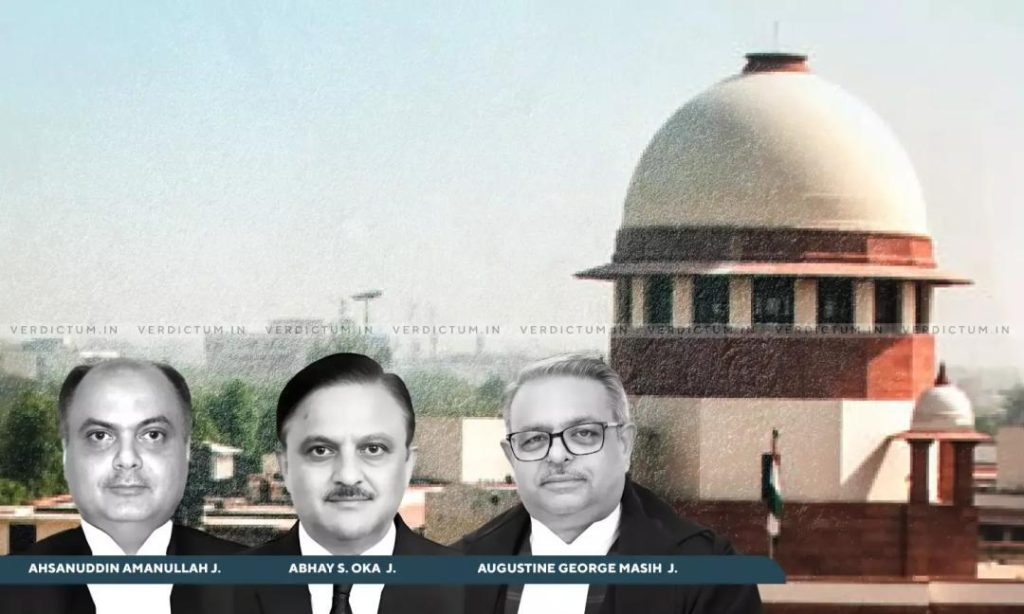
IAF Doesn’t Have Pervasive Control Over IAF Schools: SC
In a significant judgment, the Supreme Court of India has held that the Indian Air Force (IAF) does not have pervasive control over the functioning of IAF schools, even if it determines the pay scales applicable to the said schools. The Court delivered this verdict in a case where the issue was whether the Air Force School, Bamrauli, Allahabad, is a ‘State’ or ‘Authority’ under Article 12 of the Constitution.
The petition was filed by Dileep Kumar Pandey, a retired teacher of the Air Force School, who had challenged the decision of the IAF to decide on the pay scales of teachers in the school. Pandey argued that the IAF’s decision-making authority in matters of pay scales amounts to pervasive control over the functioning of the school, which makes it a ‘State’ or ‘Authority’ under Article 12 of the Constitution.
Article 12 of the Constitution defines ‘State’ to include the Government and Parliament of India, as well as all local or other authorities within the territory of India or under the control of the Government of India. The petitioner contended that the IAF, by exercising control over the pay scales of teachers, is functioning as a ‘State’ or ‘Authority’ and is hence liable for the alleged harassment and discrimination faced by the teachers.
The Supreme Court, however, disagreed with the petitioner’s contention. In a 2:1 majority judgment, Justice A.M. Khanwilkar and Justice B.R. Gavai observed that the IAF’s control over the pay scales of teachers does not amount to pervasive control over the functioning of the school. According to the judges, the IAF’s control is limited to the pay scales and does not extend to other aspects of the school’s functioning, such as academic matters, administrative decisions, or day-to-day management.
Justice Khanwilkar, in his judgment, noted that the IAF’s control over pay scales is merely an administrative function and does not imply a pervasive control over the school’s functioning. He further observed that the IAF’s decision-making authority in matters of pay scales does not amount to a ‘State’ or ‘Authority’ under Article 12 of the Constitution.
Justice Gavai, in his concurrence, agreed with Justice Khanwilkar’s observation that the IAF’s control over pay scales does not imply a pervasive control over the school’s functioning. He noted that the IAF’s control is limited to a specific aspect of the school’s functioning and does not extend to other areas.
However, Justice D.Y. Chandrachud dissented from the majority judgment, contending that the IAF’s control over pay scales amounts to pervasive control over the functioning of the school. According to Justice Chandrachud, the IAF’s control over pay scales implies a control over the school’s finances, which in turn implies a control over the school’s functioning.
The judgment has significant implications for the IAF schools, which are currently managed by the IAF. The decision means that the IAF does not have a pervasive control over the functioning of these schools, which could reduce the liability of the IAF in matters of alleged harassment and discrimination faced by teachers.
The judgment also has implications for the interpretation of Article 12 of the Constitution, which defines ‘State’ to include the Government and Parliament of India, as well as all local or other authorities within the territory of India or under the control of the Government of India. The decision reiterates that the definition of ‘State’ under Article 12 is not exhaustive and requires a factual analysis of the nature and extent of the control exercised by an authority over a school or institution.
In conclusion, the Supreme Court’s decision in Dileep Kumar Pandey v. Union of India is a significant judgment that clarifies the extent of the IAF’s control over IAF schools. The judgment reiterates that the IAF’s control over pay scales does not amount to pervasive control over the functioning of the school and does not make it a ‘State’ or ‘Authority’ under Article 12 of the Constitution.
Source:






